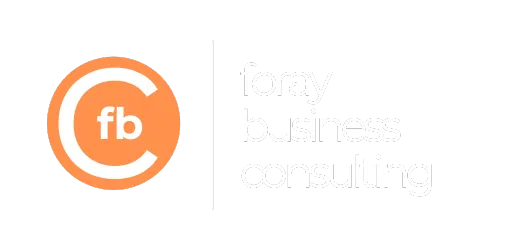
Specialized Loans for Niche Markets
Specialized Loans for Niche Markets: Tailored Financial Solutions for Unique Needs
In today's complex financial world, borrowers often need custom solutions to meet their unique needs. That's where specialized loans for niche markets come in. These loans cater to specific groups, offering tailored options that aren't available in traditional lending markets. Specialized loans provide a critical lifeline for those who may not fit the standard borrower profile, such as first-time homebuyers, investors in non-owner occupied properties, or businesses recovering from the pandemic.
Understanding how these niche financing options work can help borrowers find the right solutions for their property or business ventures. For example, a loan officer who focuses on niche markets can offer personalized loan products, ensuring borrowers get the best terms and support possible. This approach not only benefits the borrower but also helps the lender build a strong reputation in a specific market segment.

By diving into the various types of specialized loans, we can see the incredible flexibility and opportunities they offer. From first-time homebuyer programs to financing for unique property types, there's a loan product for almost every need. Let’s explore these options in detail and see how they transform the lending landscape.
Key Takeaways
Specialized loans address unique borrower needs and market segments.
Loan officers can offer personalized financial products for better terms.
Niche markets provide flexibility and various financing opportunities.
Understanding Specialized Loans
Specialized loans offer tailored financial solutions for specific markets and borrower needs. They provide opportunities for targeted investments and require a deep understanding of niche industries.
Defining Specialized Lending
Specialized lending refers to the practice of providing loans designed to meet the unique needs of specific borrower groups or industries. This type of lending includes products like microloans for small businesses, aircraft financing, energy lending, and healthcare financing. Each of these loan types caters to particular requirements and conditions.
For example, microloans support small businesses that may not qualify for traditional loans due to their size or lack of credit history. In contrast, healthcare financing offers funds tailored to medical facilities and professionals needing to invest in equipment and technology. By focusing on these unique needs, specialized lending helps borrowers who might otherwise struggle to find appropriate financial support.
The Importance of Niche Markets in Finance
Niche markets play a crucial role in the finance sector by addressing specific demands that general financial products overlook. These markets include industries or borrower profiles such as agriculture loans, energy projects, or specialized real estate properties.
Serving niche markets allows lenders to develop expertise in particular areas, offering better advice and more effective lending strategies. The tailored approach also helps mitigate risks typically associated with more generalized lending practices. As a result, lenders can make informed investments, enhancing their portfolios and supporting economic growth in unique sectors.
For instance, niche markets like aircraft financing and energy lending require an in-depth understanding of industry-specific risks and returns. By focusing on these markets, we can provide specialized support that meets precise borrower needs and promotes long-term financial stability.
Types of Specialized Loans
Specialized loans cater to specific groups of borrowers with unique needs. These loans often come with tailored terms and requirements to better serve their target markets.
Mortgage Programs for Specific Demographics
Mortgage programs designed for specific demographics help make homeownership more accessible for groups such as first-time homebuyers, seniors, and veterans.
First-time homebuyer programs often feature lower down payments and reduced interest rates, making it easier for buyers to enter the market.
Senior-specific mortgages like reverse mortgages allow retirees to convert home equity into cash without selling their homes.
Veteran-focused loans, such as those backed by the VA, offer favorable terms, including no down payment and lower interest rates.
Secured Loans for High-Net-Worth Individuals
Secured loans for high-net-worth individuals (HNWIs) leverage their substantial assets, providing favorable loan terms.
HNWIs often opt for jumbo loans, which exceed conforming loan limits and cater to purchasing luxury properties.
Another popular option is asset-backed loans, where borrowers use securities or other valuable assets as collateral.
These loans typically feature lower interest rates and higher borrowing limits, appealing to those with significant financial resources.
Tailored Loans for Self-Employed Borrowers
Self-employed borrowers face unique challenges in securing financing due to irregular income and complex financial situations.
Bank statement loans consider the borrower’s bank statements rather than tax returns to verify income, making it easier to qualify.
No-doc loans provide minimal documentation requirements, focusing instead on the borrower’s creditworthiness and assets.
Stated income loans allow borrowers to state their income without extensive documentation, streamlining the approval process.
Government-Backed Financing for Veterans
Government-backed financing options for veterans provide accessible and favorable loan terms.
The VA loan program offers numerous benefits, including no down payment, competitive interest rates, and no private mortgage insurance (PMI) requirements.
VA streamline refinance loans (IRRRL) enable veterans to refinance existing VA loans with reduced paperwork and lower costs.
These programs aim to make homeownership more affordable and achievable for those who have served in the military.
Target Markets and Borrowers
Understanding the target markets and borrowers for specialized loans is essential. This includes identifying niche market segments, applying targeted marketing strategies, and recognizing the unique needs of various customer bases.
Identifying the Right Niche Market Segment
First, we need to determine the perfect niche market segment. Niche markets in the mortgage industry often cater to specific groups of borrowers or unique property types. For example, segments can be based on borrowers' financial situations or specific geographic locations.
These specialized segments can include first-time homebuyers, investors in rental properties, and borrowers needing renovation loans. By identifying these niche markets, we ensure our offerings meet the distinct needs of these smaller, targeted sectors.
Marketing Strategies for Specific Demographics
With the right niche market in mind, we can develop effective marketing strategies. Targeted marketing involves crafting messages and campaigns tailored to specific demographic groups. This can include using digital marketing, social media, and community events to reach potential borrowers.
For instance, to attract first-time homebuyers, we can offer workshops and online resources about the mortgage process. Meanwhile, using social media ads to showcase successful renovation loan projects can appeal to property investors. These targeted strategies help us connect with our audience in meaningful ways.
Unique Needs of Varied Customer Bases
Different customer bases have unique needs that our specialized loans must address. For first-time homebuyers, affordability and simple loan processes are crucial. We need to provide lower down payment options and clear guidance throughout the buying journey.
Investors in rental properties may seek flexible loan terms and options for multiple property purchases. For those needing renovation loans, quick processing and support with budgeting are essential. By understanding and meeting these varied needs, we make our specialized offerings more attractive and valuable.
Covering these aspects ensures that our specialized lending processes align well with the expectations and requirements of our targeted borrowers, thereby boosting satisfaction and loyalty.
Loan Structuring and Security
Specialized loans require tailored approaches to address unique needs and mitigate risks. This entails developing custom credit solutions, implementing asset-based lending, and managing risks effectively.
Customizing Credit Solutions
We understand the importance of creating personalized credit solutions for our clients. Each client has unique needs, and customizing credit terms ensures they receive the most suitable financial products.
Key aspects for customizing credit solutions include:
Assessment of Borrower Needs: Detailed evaluation of the client's financial situation and goals.
Flexible Payment Structures: Offering adjustable payment plans based on cash flow and earnings.
Unique Loan Terms: Designing specific interest rates, loan amounts, and repayment periods.
Structured finance tools play a role in these custom solutions, ensuring clients get the best possible outcome.
Asset-Based Lending for Businesses
Asset-based lending (ABL) is a critical component for businesses seeking specialized loans. By leveraging business assets, companies can secure funding to support their operations and growth.
Important features of ABL:
Collateralization: Loans backed by assets such as inventory, accounts receivable, or equipment.
Liquidity Solutions: Providing immediate cash flow to manage expenses and invest in growth.
Credit Line Flexibility: Adjusting credit limits based on the value of the pledged assets.
ABL offers businesses a way to access capital without relying solely on credit scores, focusing on the value of tangible assets.
Risk Management in Specialized Lending
Effective risk management is essential in specialized lending due to the complexity and higher risks involved. We employ various strategies to minimize potential losses and ensure loan security.
Risk management practices include:
Thorough Underwriting: Comprehensive evaluation of the borrower's creditworthiness, including financial statements and asset valuations.
Diversification: Spreading investments across multiple asset classes to reduce risk exposure.
Ongoing Monitoring: Regular review of the borrower's financial health and the value of the secured assets.
By implementing these practices, we enhance the security of our loans and protect both our interests and those of our clients.
Operational Strategies in Niche Lending
Operational strategies in niche lending focus on building a diversified loan portfolio, implementing targeted marketing strategies, and ensuring regulatory compliance. These strategies are crucial for managing risk and maximizing opportunities in specialized markets.
Building a Diversified Loan Portfolio
Diversification is key to managing risk. By spreading investments across various niche markets, we can mitigate the impact of any single market's downturn. We need to analyze different borrower groups, including first-time homebuyers, borrowers with less-than-perfect credit, and those with unique property types.
It's important to balance high-risk loans with safer ones to maintain portfolio stability. We also stay agile by continually reassessing our loan mix, adjusting as market conditions change, and identifying new niche opportunities.
Implementing Targeted Marketing Strategies
Effective marketing in niche lending requires a precise approach. We must understand our target audience's needs and preferences. Personalized marketing materials tailored to specific borrower groups can significantly boost engagement and conversion rates.
Utilizing digital marketing tools, like social media and email campaigns, helps us reach potential borrowers more efficiently. Crafting clear, relatable messages that speak directly to niche audiences ensures our marketing resonates and drives results. For example, marketing to first-time homebuyers requires different messaging than marketing to investors of unique properties.
Ensuring Regulatory Compliance
Compliance with industry regulations is essential for maintaining trust and avoiding legal issues. We must stay updated on local, state, and federal lending laws that impact our niche markets. Regular training for our team ensures everyone understands and follows these regulations.
Implementing robust compliance monitoring systems to track changes in regulations and adjust our practices accordingly is equally important. By building a culture of compliance, we protect our business and avoid potential fines or penalties, ensuring our operations remain transparent and lawful.
Success Factors for Specialized Lending
Success in specialized lending hinges on gaining deep industry insights, forging strategic connections, and establishing a strong reputation through focused expertise.
Developing In-Depth Industry Knowledge
In specialized lending, having detailed knowledge of the target industry is crucial. We must understand the specific needs, risks, and dynamics of sectors like healthcare, agriculture, or microbreweries. This involves staying updated on industry trends, regulatory changes, and technology advancements. Attending industry conferences, subscribing to relevant publications, and participating in professional training can help us gain the necessary expertise. This depth of understanding allows us to tailor our lending solutions to fit the unique requirements of each niche market, making our services more attractive to potential clients.
Expanding Through Strategic Networking
Strategic networking opens doors to new opportunities in specialized lending. Building relationships with industry professionals, influencers, and potential clients can expand our reach and credibility. We should attend networking events and join industry associations to connect with key players. These interactions can lead to valuable insights, referrals, and collaborations. By maintaining an active presence in both online and offline industry communities, we can stay informed about emerging trends and opportunities. Networking is not just about making connections but also about nurturing these relationships over time to build a trustworthy and reliable reputation.
Building Credibility Through Specialization
Credibility is built through consistent focus and expertise in specialized lending. We should establish ourselves as experts in niche markets by providing tailored lending solutions that address specific industry challenges. Publishing whitepapers, writing industry-specific blog posts, and participating in webinars can showcase our knowledge and build trust with potential clients. Clear and transparent communication about our services and success stories further enhances our credibility. By consistently delivering results and demonstrating our commitment to understanding the unique needs of niche markets, we solidify our position as trusted specialists in the field.
The Future of Specialized Lending
Specialized lending is growing rapidly, driven by new market needs and innovative loan products. As the financial landscape evolves, this type of lending will need to innovate and adapt.
Adapting to Changing Market Needs
As market needs shift, our ability to adapt will determine our success. Consumers are becoming more diverse, and these changes bring new opportunities. For example, first-time homebuyers often seek loans tailored to their financial situation. By focusing on these groups, we can create targeted solutions that improve access to credit.
Demographic shifts also play a big role. Older adults might need reverse mortgages, while younger generations may prefer tech-driven solutions. Each group requires unique loan types. By addressing these specific needs, we help more people achieve their financial goals, ensuring long-term growth and customer satisfaction.
Innovation in Loan Products and Services
Staying ahead means constantly innovating. In specialized lending, the creation of new loan products can meet emerging demands. For instance, peer-to-peer (P2P) lending platforms are revolutionizing how loans are managed, making it easier for people without traditional credit histories to get loans. This not only attracts new customers but also diversifies our portfolio.
There is also potential in technology. With machine learning and artificial intelligence, we can better assess loan applicants, reducing risks and enhancing loan performance. Digital platforms make loan applications faster and more accessible, meeting the expectations of today’s consumers who value convenience and speed. By leveraging these advances, we can offer better services and stay competitive in a dynamic market environment.
Frequently Asked Questions
In this section, we'll address some common questions about Fannie Mae and Freddie Mac specialized loans, focusing on eligibility, loan rates, key features, and market trends.
What are the eligibility requirements for Fannie Mae Multifamily loans?
Fannie Mae Multifamily loans cater to investors looking to purchase or refinance properties with five or more units. Borrowers must demonstrate a solid credit history, stable income, and adequate reserves. The property should be in good condition, and environmental and property condition assessments may be required.
How do Fannie Mae Small Balance loan rates compare with standard loan rates?
Fannie Mae Small Balance loan rates often offer competitive interest rates compared to standard commercial loans. These rates are influenced by factors like loan size, location, and borrower creditworthiness. Generally, they may be slightly higher than traditional loans but provide more flexibility and quicker approval processes.
What are the key features of the Fannie Mae Small Loan program?
The Fannie Mae Small Loan program focuses on loans between $1 million and $6 million. Features include fixed and variable rates, a streamlined approval process, and flexible terms up to 30 years. These loans can be used for acquisition, refinance, or rehabilitation of multifamily properties.
Can you provide an overview of the terms included in the Fannie Mae Small Loan Term Sheet?
The Fannie Mae Small Loan Term Sheet outlines terms such as loan amounts ranging from $1 million to $6 million, amortization periods up to 30 years, and fixed or variable rate options. Prepayment terms and interest-only periods may also be included. Specific conditions will vary based on property and borrower profiles.
What trends are affecting current Fannie Mae Multifamily Loan Rates?
Current trends affecting Fannie Mae Multifamily Loan Rates include interest rate fluctuations influenced by the Federal Reserve, market demand for multifamily housing, and broader economic conditions. Rising construction costs and changing tenant preferences also play roles in shaping these rates.
How do Freddie Mac Small Balance Loans differ from Fannie Mae's offerings?
Freddie Mac Small Balance Loans differ mainly in their underwriting criteria and loan structures. While similar in loan size and purpose, Freddie Mac often offers different terms for amortization, prepayment penalties, and interest rates. Borrowers might find variations in the flexibility and speed of the approval processes between the two.
GET FUNDED IN 1-2-3 EASY STEP
Checking your rate won’t affect your credit score

Apply Online
- Fast & Easy Online Application Our loan specialist will contact you Or call us at our phone number: (905) 594-1139

Review Your Options
-You will have your decision in minutes. No paperwork, no waiting

Get Funded
- True term loans – $5,000 – $1,000,000 Receive funding in as fast as 1 day
Foray Business Consulting © | ALL RIGHTS RESERVED | LOANS SUBJECT TO LENDER APPROVAL
The operator of this website is NOT a lender, does not make offers for loans, and does not broker online loans to lenders or lending partners. Customers who arrive at www.foraybusinessconsulting.com are paired with a lender or a lending partner, and redirected only to lenders or lending partners who offer business loan products.

